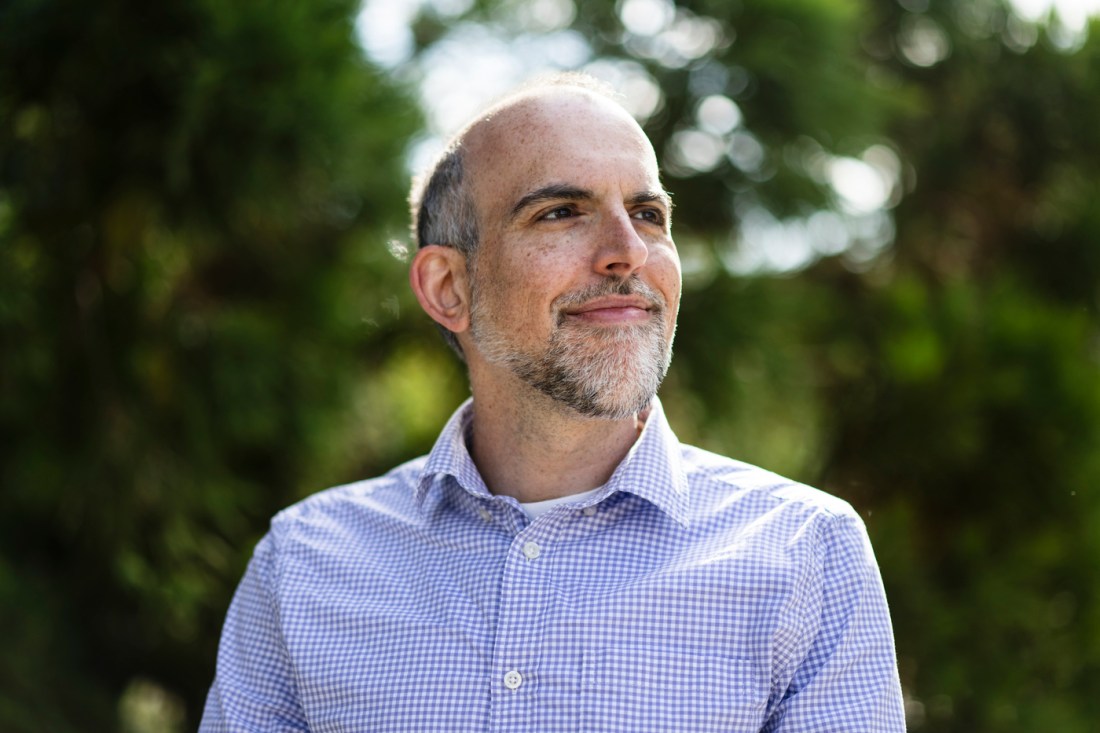‘Brain rot’ is Oxford’s 2024 word of the year. What does that say about society?
Adam Cooper, a teaching professor of linguistics at Northeastern, says this year’s selection illustrates how the evolution of language can hold up a mirror to society.

Oxford University Press’ word of the year for 2024 is “brain rot,” an expression — written as two words — that saw a 230% increase in usage over the last year, according to lexical authorities.
First recorded in Henry David Thoreau’s “Walden,” brain rot is defined by Oxford as: “the supposed deterioration of a person’s mental or intellectual state, especially viewed as the result of overconsumption of material (now particularly online content) considered to be trivial or unchallenging.”
Adam Cooper, a teaching professor of linguistics at Northeastern, says this year’s selection, while tongue in cheek, illustrates how the evolution of language can hold up a mirror to society — here pointing to the excesses of modern technology use.

“Discussion of brain rot, or use of the term, has peaked over the course of the year,” Cooper says. “It’s perhaps a recognition, even if playful and informal, that social media plays an incredibly important part of many people’s lives — perhaps even to their detriment.”
As with years prior, the word of the year selection invites public introspection and thought about a year of cultural experience and collective discourse. But as so much of English language innovation is closely linked to the latest slang of younger generations, Cooper says a term like brain rot cuts across generations, prompting a larger conversation about the values associated with technology, social media and the internet more broadly.
“With a term like brain rot, there is an inherently negative sense of what that value is; one might even say there is a lack of value,” Cooper says. “But maybe there is a conversation to be had across generations and across different kinds of groups who have different relationships to social media about: What is the nature of this content, What is it providing and are there alternatives?”
Oxford University Press, the publishing house of the University of Oxford, has been putting out a word of the year annually since 2004. With the rise of digital media, leading dictionaries have turned to the world of online communications as the chief dataset for analyzing trends in how English is being used, Cooper says.
“The internet is inextricably linked to the rise and development of this word of the year phenomenon and the interest people have in seeing what these authorities hit upon — whether these are expressions that resonate with the individual or not,” Cooper says.
Editor’s Picks
That’s not to say that it was impossible to survey language use before the digital age. Cooper says this kind of socio-linguistic work had been going on for decades prior to the internet — albeit, with less readily available data.
“It was just a much more time-consuming process and a more selective process,” he says.
Last year’s word of the year was “rizz,” which is shorthand for charisma. A product of Gen Z, lexical authorities consider the term to be slang, as is the case with many words taken up by younger generations. In general, slang tends to be short-lived, coming into existence to capture a particular feeling before falling out of fashion and being replaced by new expressions, Cooper says.
“That again speaks to the interesting nature of this word of the year choice because, in a way, it really is a word of the year,” Cooper says. “It takes hold for a brief period and falls out of use shortly thereafter. There again I think the internet plays a role in just how quickly expressions ricochet across popular awareness, but then recede from that awareness too.”
Cooper says that modern dictionary makers are descriptivists, meaning they view language as an organic substance that changes over time, in tandem with how speakers use it. In essence, descriptivists believe that popular usage trumps proper usage, he says.
“There’s no judgement put on it; this is just recognizing how the language is developing over time,” Cooper says. “And that development, that change, is just a fact of life.”











